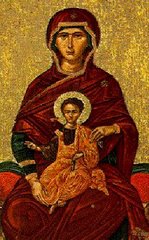
Nationalism emerged as a response to the instability in Western Europe as the feudal system collapsed toward the end of the Middle Ages. For centuries Europeans had viewed themselves of citizens of a vast Christian Empire, united in faith. As the Feudal system began to break down under its own weight the Church went from being a stabilizing factor in society to being a plagued by corruption.

People began to look to their cultural identities as a source of unity and stability. By the end of the medieval era there were distinctly French, German, British, Italian, and Spanish cultures. This local unity was derived from a common heritage, common leadership, and common customs; the modern Nation-state emerged.
The Church did not respond favorably to nationalism as it was seen as a step toward secularization. People now looked to local government rather than the Church as a source of authority. This paved the way for division among the faithful and eventually added fuel to the fire of the Reformation.

The French Revolution is perhaps the greatest example of nationalism run afoul. The French lower classes, full of Rationalist spirit, saw the authority of the Church, Monarchy, and Nobility as an insult to the more "modern" ideas of Liberty, Fraternity, and Equality. After assisting the American colonies in gaining their independence from Britain (and in many ways, inspired by their success) the French launched their own revolution, tore down the existing authority and attempted to establish a free and equal society.

Indeed, the lower classes of French society were oppresed, especially compared to the extravagant lifestyle of the French nobility and clergy. However, in their zeal for transforming their national identity the Revolutionaries launched a deadly campaign against every member of the upper class, known as the Reign of Terror. Countless members of the aristocracy, including women and children, met their end at the hands of a French mob and the brutally efficient guillotine.
The Reign of Terror only ended when Napolean rose to power and set out to dominate all of Europe.
Until next time,
Ad Jesum per Mariam,
Mr. B

No comments:
Post a Comment